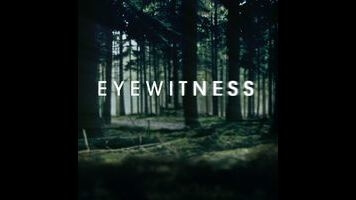As its title implies, however, there are certain events only a few people have special insight into, and that knowledge could kill them. A pair of teens, fooling around in a remote cabin, witness several gangland executions, and manage to escape by cracking the killer in the head with a frying pan. They agree to keep it a secret (one is openly gay, the other deeply in the closet), but after realizing the killer has survived, and is probably searching for them, the bonds of intimacy begin to fray. Not helping matters is the fact that one of the boys, Phillip, is a foster child, recently assigned to a couple in which the father (Gil Bellows) is eager to share their lives with him, while the mother (Julianne Nicholson), the town sheriff, is more than a little ambivalent. Also, the FBI is involved—one of the gang members shot was an informant, and his wife is the sister of one of the investigating agents. Add to this mix a heroin dealer trying to protect his daughter from her pedophile beau, the local murderous biker gang, and Phillip’s drug-addict mother, and you start to get a feel for just how quickly this show piles on subplot after subplot, as though it’s too unsure of its storytelling prowess to get by on the central narratives.
For the first few episodes, the series tackles too much too quickly, leading to a sense of fatigue. After the excellent opening conceit of the murders, Eyewitness rushes to include every even tangentially related character, trying to make time for all of them, and it’s a dizzying array of stories that would benefit from allowing each one some breathing room, as subsequent episodes smartly provide. Once the need to build backgrounds and arcs for everyone in sight recedes, it improves both the pacing and tone of the show, which is derived from the Norwegian series Øyevitne. It still packs in a few too many coincidences and inconsistent characterizations, where people behave in ways more geared toward making whatever needs to happen in the episode take place, but these instances aren’t so outrageous as to beggar belief.
Holding all of the outsized ambition and messy sprawl of a story together is Nicholson, a phenomenal actor who, like Viola Davis in How To Get Away With Murder, singlehandedly elevates the show from just another reasonably compelling murder mystery into something better. Her performance as Sheriff Helen Torrance is so lived-in and natural—there’s a great moment in the pilot where she laughs at a completely inappropriate time—you can almost track the rest of the cast rising to her level the more screen time they share with her. Especially good is Nicholson’s chemistry with Matt Murray as the sheriff’s much younger deputy, Tony. The two of them have a loose and sparkling rapport that adds rare levity to all the soulful gazes and grim-faced machinations. They bring a buddy-cop feel to the proceedings, and going forward, Eyewitness would benefit from remembering to allow the rest of its cast to share some lighthearted moments, as well.
But the real emotional fireworks of the series take place between Lukas and Phillip, the two fragile and damaged young men trying to somehow make a relationship happen in a town where that’s essentially impossible. It’s a humane and believable portrait of a teen relationship pushed to extremes by the weight of one-half of the duo unable to come out to his family and community, resulting in painful push-pull moments of tension. James Paxton’s Keanu Reeves-like performance as motocross-riding jock Lukas sometimes struggles to match the pyrotechnics of the material, but during quieter moments, they achieve a humane intimacy that provides a nice counterpoint to all the murderous histrionics. Eyewitness isn’t reinventing the narrative wheel (really, it’s just adding an additional number of axes to a crowded chassis), but these strong emotional elements and Nicholson’s fantastic lead performance keep it grounded and entertaining. Much like Sheriff Torrance, you won’t love it in Tivoli, but the people will make you want to stay.


















![Rob Reiner's son booked for murder amid homicide investigation [Updated]](https://img.pastemagazine.com/wp-content/avuploads/2025/12/15131025/MixCollage-15-Dec-2025-01-10-PM-9121.jpg)






















